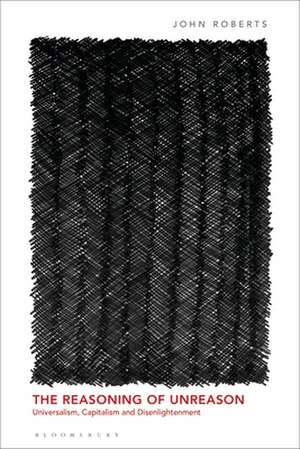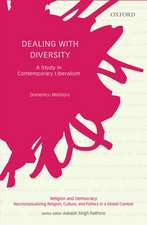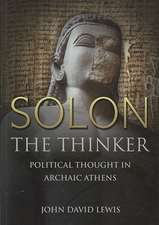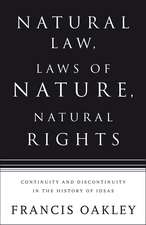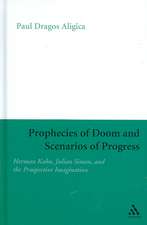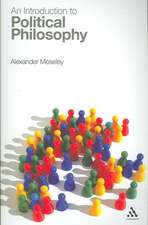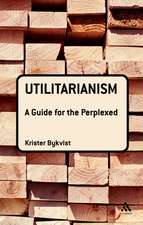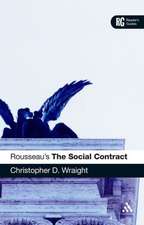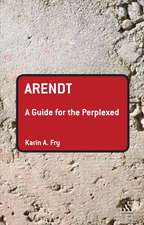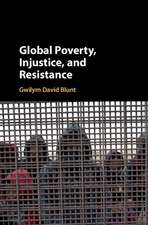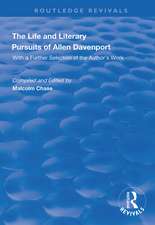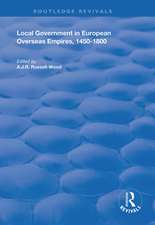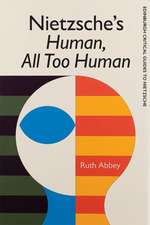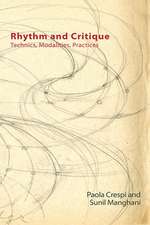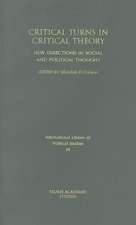The Reasoning of Unreason: Universalism, Capitalism and Disenlightenment
Autor John Robertsen Limba Engleză Paperback – 19 feb 2020
| Toate formatele și edițiile | Preț | Express |
|---|---|---|
| Paperback (1) | 225.31 lei 6-8 săpt. | |
| Bloomsbury Publishing – 19 feb 2020 | 225.31 lei 6-8 săpt. | |
| Hardback (1) | 716.31 lei 6-8 săpt. | |
| Bloomsbury Publishing – 22 aug 2018 | 716.31 lei 6-8 săpt. |
Preț: 225.31 lei
Preț vechi: 289.18 lei
-22% Nou
Puncte Express: 338
Preț estimativ în valută:
43.11€ • 45.02$ • 35.60£
43.11€ • 45.02$ • 35.60£
Carte tipărită la comandă
Livrare economică 15-29 aprilie
Preluare comenzi: 021 569.72.76
Specificații
ISBN-13: 9781350151000
ISBN-10: 1350151009
Pagini: 224
Dimensiuni: 156 x 234 mm
Greutate: 0.4 kg
Editura: Bloomsbury Publishing
Colecția Bloomsbury Academic
Locul publicării:London, United Kingdom
ISBN-10: 1350151009
Pagini: 224
Dimensiuni: 156 x 234 mm
Greutate: 0.4 kg
Editura: Bloomsbury Publishing
Colecția Bloomsbury Academic
Locul publicării:London, United Kingdom
Caracteristici
The author overturns conventional understandings of the antagonism between the pro-capitalist right and the anti-capitalist left and effectively rethinks the political antagonism between capitalist and communist rationality
Notă biografică
John Roberts is Professor of Art and Aesthetics at the University of Wolverhampton, UK. His books include The Art of Interruption: Realism, Photography and the Everyday, The Philistine Controversy (with Dave Beech), Philosophizing the Everyday, and The Necessity of Errors. He is also a contributor to Radical Philosophy, Oxford Art Journal, Historical Materialism, Third Text, and Cabinet magazine.
Cuprins
AcknowledgementsIntroduction1) Hereticism, faith and the antinomies of reason2) Writing enlightenment-disenlightenment in the 16th and 17th centuries3) Bourgeois universalism in the age of Enlightenment and Nationalism4) The reasoning of unreason as anti-philosophy: post-war capitalism, emancipatory universalism and radical particularismConclusionBibliographyIndex
Recenzii
John Roberts' The Reasoning of Unreason impressively shows how a contemporary critique of oppression must proceed: It must understand oppression in its own rationality. Roberts therefore analyzes in detail and with a broad historical perspective how the regimes of oppression think - how they reason against reason. Oppression thus becomes recognizable as the oppression of thinking itself: of its emancipatory power of radical universality. A remarkable example of Marx's "true philosophical criticism."
Where standard left critiques of reactionary politics view these as symptoms of irrational attachments, John Roberts shows how reactionaries lay claim to a universal reason to legitimize differences of race, culture, class, and caste. Robert's book is not only a brilliant analysis, but also a timely reminder that today's most urgent political contrast is not between universalism and particularism but between a reactionary reason dedicated to shoring up limits and an emancipatory reason working to undo them.
Where standard left critiques of reactionary politics view these as symptoms of irrational attachments, John Roberts shows how reactionaries lay claim to a universal reason to legitimize differences of race, culture, class, and caste. Robert's book is not only a brilliant analysis, but also a timely reminder that today's most urgent political contrast is not between universalism and particularism but between a reactionary reason dedicated to shoring up limits and an emancipatory reason working to undo them.
